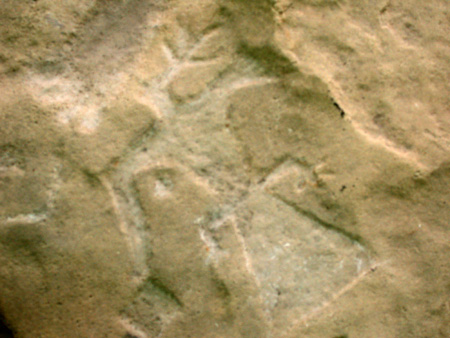Recovered from the Wayback Machine.
I have never been much of a game player. I liked some sports and participant games such as Tag and marbles, played volleyball and baseball and soccer, and I’m rather fond of Mahjong. But I never was one for cards, or board games, or anything of that nature. Monopoly leaves me cold.
When I started college, a big thing on campus at that time was role-playing games, such as Dungeons and Dragons. These were a novelty to me and I remember attending a day long D & D festival, marveling at the people that took it all so very seriously.
My indifference to games extends to computer and online role-playing games such as Quake or, well I can’t even think of the names of popular games. I was at one time heavily interested in three-dimensional computer graphics – I applied for but didn’t get a job at Lucas’ Industrial Light and Magic; however this interest was because of the technology and the beauty of the creations, not because I was a gamer.
I playacted when I was younger, and acted a bit in high school. But I quit high school and grew up. (Or was it, I grew up when I quit high school?) As I got a older I would sometimes put on a Social Mask, part of the same costume that included flowers and halter top one year, gold chains and disco dress another. Over time, though, I found that people would sometimes like the Mask more than me, and I came to realize the Mask was not my friend.
At Central University, when I returned to college as an old woman of 29, I wore the persona of Young Female College Student, and faced my 30th birthday behind anorexic walls and determined denial. As part of my ‘fitting in’, not the least of which was trying to share my young lover’s interests, I tried the role-playing games a couple of times but they had no appeal for me. I liked the pretty dice, but eventually became bored with the game and pretty young man.
Now, the only mask I wear is one of mud.
I must seem prosaic and lacking in imagination because I don’t care for role-playing. However, I can walk along Katy Trail and imagine the Little People calling to me as Owl from the bushes; I can see a story unfold before me, overlayed on reality and forming a double image in my mind until spilled forth on paper or keyboard; I can dive into a book and wrap the words around me, losing myself; I’ll look at a photograph or a painting or a piece of sculpture and I can sense menace, or joy, or sorrow, or even silliness from abstract curves and empty seats. If this isn’t imagination, I’ll take whatever it is and be content.
Some might point out that Burningbird is a role, a persona I take on as a weblogger. Yet the words I write as Burningbird are no different than the words I would write as Shelley, or Bb, or Shell or any name I’m called.
Does role-playing give us insight, and allow us greater freedom of expression? I can see how this would be, and perhaps I’m voluntarily stifling my creativity by not trying out different roles, especially when communicating. Other people’s reaction to the roles and the words spoken while in role must be enlightening – but then, how do I know they’re not also adopting roles when they respond?
Perhaps the roles are really bits of ourselves we slice off to stand in stark contrast to the blended whole, like the photographer who filters out the reds in a photo that will eventually be published in black & white. I do sometimes let my Evil Twin out to play, but I have a little secret for you – she’s me.
Are novelists like WG Sebald and poets like Sylvia Plath taking on roles when they write? Or are they using empathy rather than masks?
I think that role-playing for some of us happens internally rather than externally. I am talking with you and you don’t see the Joker or the Whore or the Mother or the Sadist but they’re here, inside me. And someday their response to you will find life, in a phrase or a sentence I write for a story. But by then, you’ll be inside me, too.

